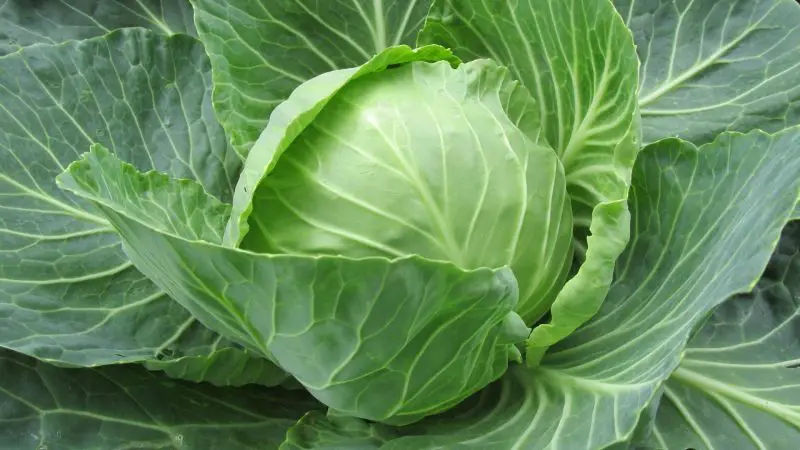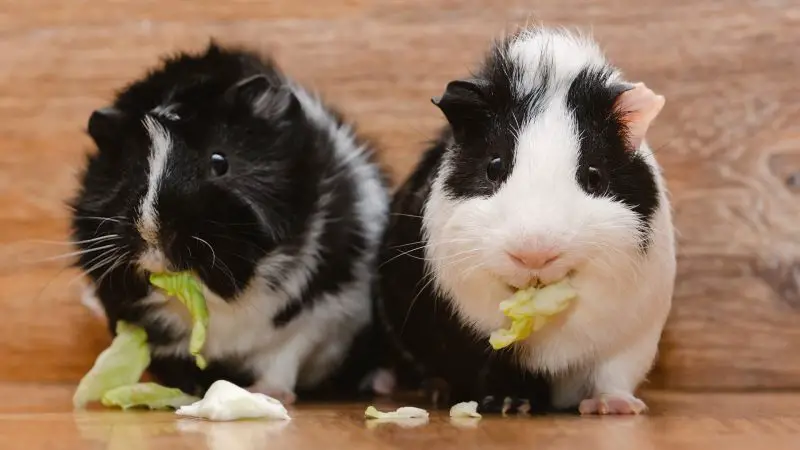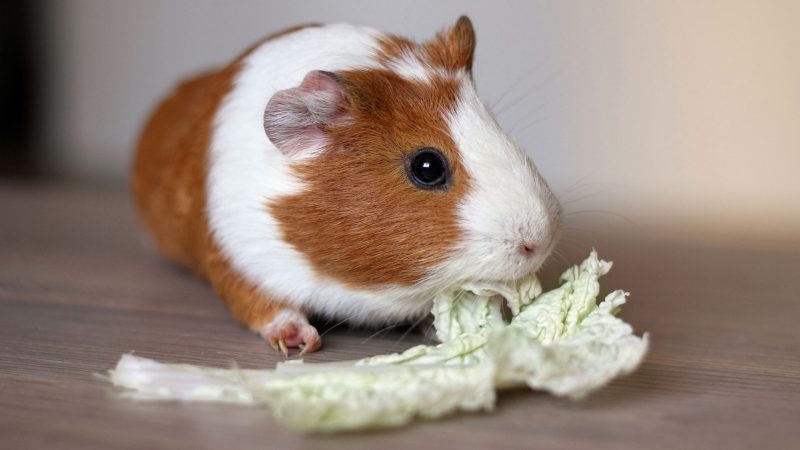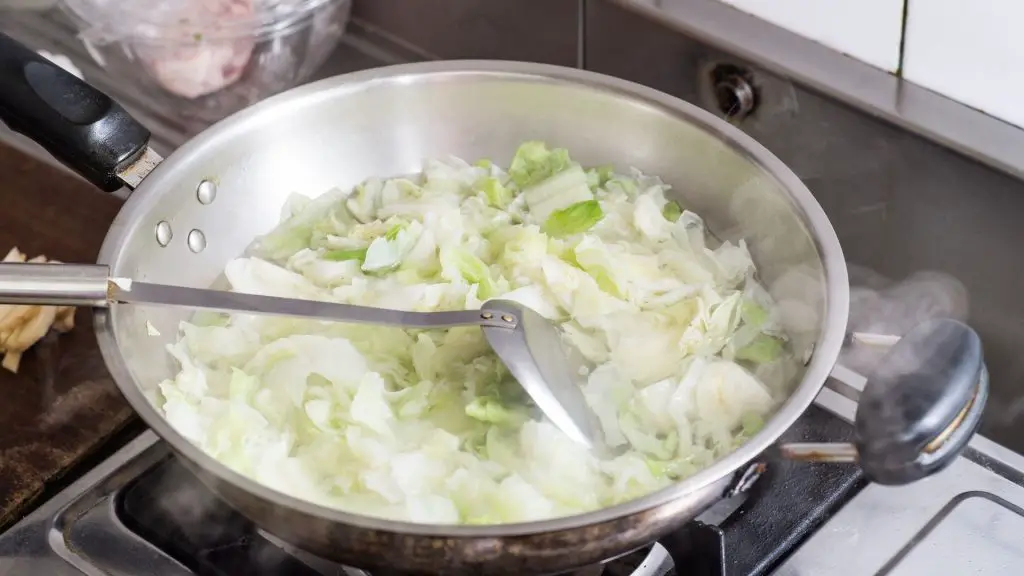White cabbage is a very firmly packed type of cabbage. It is actually not plain white because it has some shade of bright green. White cabbage is eaten either raw or cooked, but it is better to eat it raw to fully utilize nutrients.
Can guinea pigs eat white cabbage? Guinea pigs can eat white cabbage. It is packed with vitamins and nutrients, essential for their health. They prefer the taste of this cabbage, and it is easy to introduce into their diet.
In this article, you can take a more detailed look at the white cabbage as food for the guinea pigs. To learn more about this vegetable, read the following sections (benefits, risks, nutrition facts, and more) below.
Table of Content
Is White Cabbage Good for Guinea Pigs? | Health Benefits

White cabbage is a healthy vegetable packed with many nutrients that are good for your guinea pig’s health. This type of cabbage has several advantages for guinea pigs, which you need to know. The following are some of them:
Significantly Reduce Inflammation
Swelling is a normal body reaction to injury or diseases and typically ends within a short time. However, in some cases, it can get to chronic levels and pose a threat to the health of your pet.
Chronic swelling is connected to cancer and other complications. White cabbage has nutrients and compounds such as antioxidants that help deal with inflammation by preventing or reducing it.
This also reduces the risk of your pet developing chronic inflammation. Such antioxidants are kaempferol and sulforaphane.
Immune System Booster
Guinea pigs need vitamin C, which can be found in white cabbage. Vitamin C has several functions in the body of a guinea pig. It strengthens the white blood cells, creating a stronger immune defense.
This means that your guinea pig will easily prevent diseases and successfully deal with infections. In addition to this, vitamin C also helps in iron absorption. Iron is a vital mineral used by red blood cells in blood formation.
Its deficiency leads to anemia, while vitamin C deficiency causes a disease called scurvy. Vitamin C is also a potent antioxidant that has anti-inflammatory properties.
Reduces the Risk of Cancerous Growths
Cancer can be caused by chronic inflammation inside the body. White cabbage has all the necessary antioxidants that aid in the fight against cancerous growths. In particular, Vitamin C and A help prevent growths that may arise inside a guinea pig’s body.
Boosts Digestion
The digestive tract of guinea pigs is sensitive, and they depend on the food they eat for a smoother digestive process. White cabbage is filled with dietary fiber that makes digestion easier for your pet.
Besides, the fiber also helps to reduce constipation and promote smooth bowel movement.
Keep Weight in Check
White cabbage is a diet food since it contains low calories. Besides, it is filled with dietary fiber, a known filler food, promoting satiety or fullness. This reduces the amount of food eaten by the guinea pig.
Vital for Cardiovascular Health
White cabbage has minerals such as potassium that contribute to a healthy heart. Potassium keeps the heart muscles in check, thus reducing the risk of heart attacks and failure.
Development of Healthy and Vibrant Bones
White cabbage has sufficient nutrients essential for developing strong bones and teeth. Vitamin K helps to fortify the bones and increases bone density. Calcium helps develop healthy bones and reduces the chances of bone-related ailments and complications in guinea pigs.
Reduces Blood Pressure
High blood pressure is a significant risk factor that causes heart failure and other complications. According to research, low salt intake can reduce high blood pressure.
A better way of doing this is by increasing potassium levels; it can equally help regulate blood pressure in guinea pigs. This mineral achieves blood pressure reduction by alleviating sodium’s effects in the body.
It facilitates the excretion of excess sodium through urine. Also, it helps to relax the walls of the blood vessels, and as a result, it lowers blood pressure.
Lowers the Cholesterol Levels
Cholesterol is a natural compound in the body that can cause several risky complications when present at high levels. It is found in most body cells and can cause massive cell damage if not dealt with.
Contrary to what people believe, cholesterol is needed by the body in small amounts. White cabbage sterols can help to regulate or lower cholesterol levels. They block the absorption of this compound in the digestive tract.
Easy to Incorporate in a Guinea Pig’s Diet
White cabbages are tasty, and your guinea pig will enjoy eating them any time. You won’t have trouble introducing vegetables to their diet.
Nutrition Facts of White Cabbage
Per 100 g of white cabbage, these are the nutrition facts:
- Calories: 25
- Carbohydrate: 5.8 g
- Protein: 1.3 g
- Vitamin K: 95%
- Vitamin C: 61%
- Dietary fiber: 2.5 g
- Potassium: 5%
- Manganese: 3%
- Folate: 11%
- Calcium: 4%
- Magnesium: 3%
Risks to Consider When Feeding White Cabbage to Guinea Pigs

There aren’t many risks associated with feeding your guinea pig white cabbage, except for the following:
Allergic Reactions
There are guinea pigs that can show allergic reactions to white cabbage through diarrhea and vomiting. As an immediate solution, you can offer your guinea pig plenty of water and carefully monitor its recovery from the symptoms. If symptoms get worse, visit a qualified vet for assistance.
Gas and Bloating
Just like any type of cabbage, this vegetable produces excessive gas in the guinea pig’s stomach. Hence, it should be fed in moderation.
Can Guinea Pigs Eat Cabbage Every Day? | Serving Size and Frequency

White cabbage should be fed to guinea pigs in moderation. Too much feeding of this vegetable can cause digestive problems such as bloating and mild acidity.
It can also lead to bladder stone formation due to excessively consuming its calcium content. Therefore, it should be served in small amounts, once or twice a week.
Can Guinea Pigs Eat Cooked White Cabbage?

You should also remember not to cook it because this will drastically reduce the number of nutrients, making it practically useless. Besides, guinea pigs cannot eat processed foods, and giving them cooked white cabbage can result in indigestion problems.
You can also mix white cabbage with other vegetables or fruit to give your guinea pig a more nutritious meal.
Quick Facts on White Cabbage
These are some of the fun facts about white cabbage:
- White cabbage originates from Europe.
- It can be consumed either raw or cooked.
- White cabbage completes its life cycle in two years; hence, this is a biennial plant.
- China is the leading producer of cabbage, and Russia is the primary consumer.
- White cabbage can be used as a laxative.
- During its first year of life, white cabbage grows 16 – 24 inches in height.
With food, you should be careful what to choose. If you are not sure what to feed them but believe your little piggies deserve some great treats, check our Helpful Guide to the Best Guinea Pig Treats to get some ideas.
